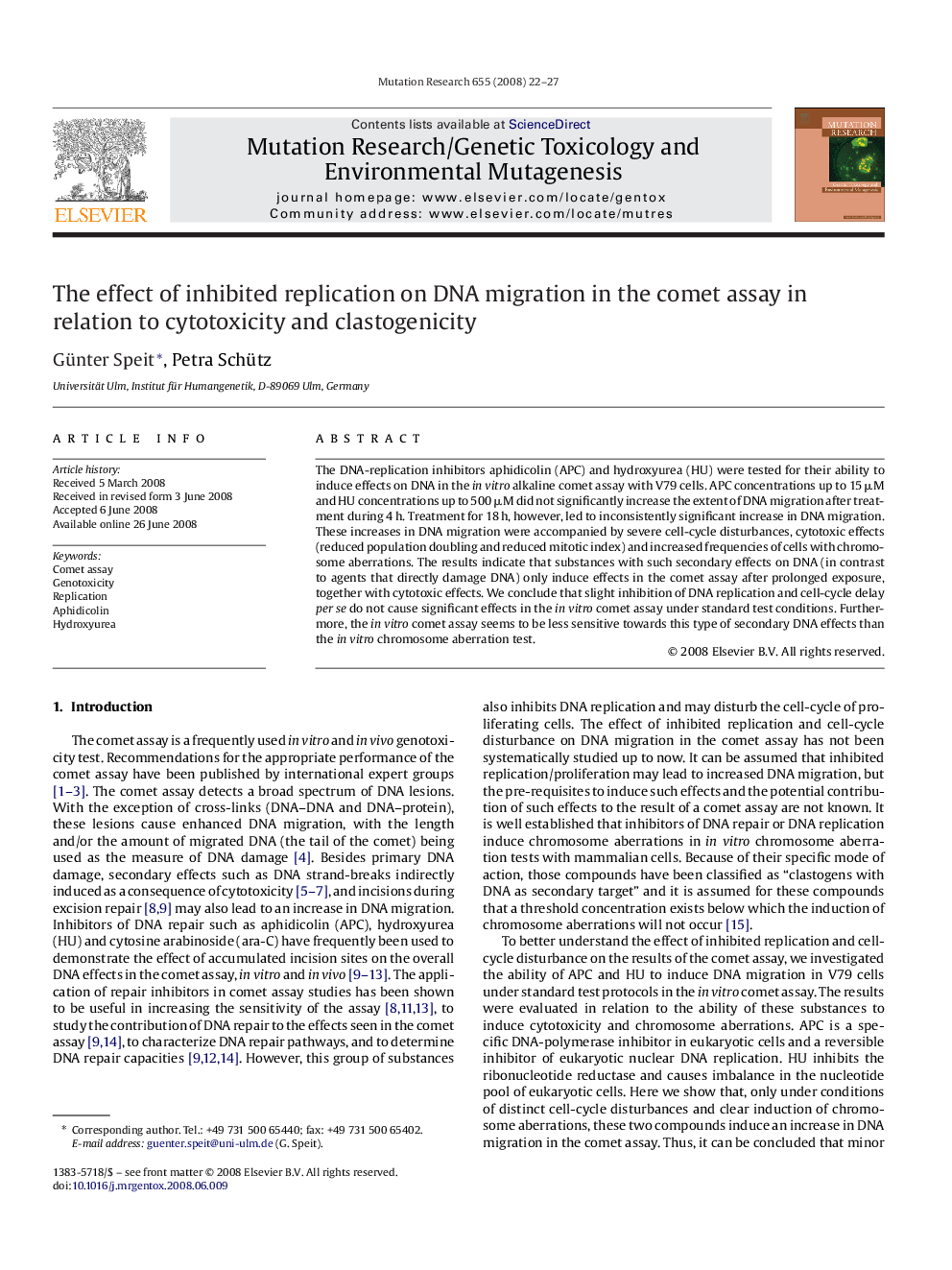| Article ID | Journal | Published Year | Pages | File Type |
|---|---|---|---|---|
| 2148988 | Mutation Research/Genetic Toxicology and Environmental Mutagenesis | 2008 | 6 Pages |
The DNA-replication inhibitors aphidicolin (APC) and hydroxyurea (HU) were tested for their ability to induce effects on DNA in the in vitro alkaline comet assay with V79 cells. APC concentrations up to 15 μM and HU concentrations up to 500 μM did not significantly increase the extent of DNA migration after treatment during 4 h. Treatment for 18 h, however, led to inconsistently significant increase in DNA migration. These increases in DNA migration were accompanied by severe cell-cycle disturbances, cytotoxic effects (reduced population doubling and reduced mitotic index) and increased frequencies of cells with chromosome aberrations. The results indicate that substances with such secondary effects on DNA (in contrast to agents that directly damage DNA) only induce effects in the comet assay after prolonged exposure, together with cytotoxic effects. We conclude that slight inhibition of DNA replication and cell-cycle delay per se do not cause significant effects in the in vitro comet assay under standard test conditions. Furthermore, the in vitro comet assay seems to be less sensitive towards this type of secondary DNA effects than the in vitro chromosome aberration test.
